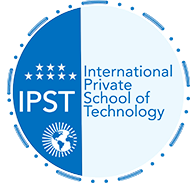Blockchain technology, best known for its use in cryptocurrency, has the potential to revolutionize the education system. By offering secure, transparent, and decentralized solutions, blockchain can address several challenges faced by educational institutions, from credential verification to improving administrative efficiency. In this article, we explore the various ways blockchain can transform education.
The Role of Blockchain in Education
1. Secure and Transparent Credentialing
One of the most significant applications of blockchain in education is the creation of secure, tamper-proof academic records. Blockchain can store and verify academic credentials, making it easier for institutions and employers to confirm a student’s qualifications. This reduces the risk of fraud and ensures the authenticity of educational achievements.
2. Efficient Administrative Processes
Blockchain can streamline administrative tasks such as admissions, grading, and record-keeping. Smart contracts—self-executing contracts with the terms directly written into code—can automate these processes, reducing administrative overhead and enhancing efficiency.
3. Decentralized Learning Platforms
Blockchain can enable decentralized, peer-to-peer learning platforms, where students and educators can interact directly without intermediaries. This model can lower costs, increase access to quality education, and provide a more flexible learning experience.
4. Improved Data Security and Privacy
With blockchain, students’ personal and academic data can be stored securely, giving them more control over their information. Blockchain’s encryption capabilities ensure that data remains private, reducing the risk of data breaches that are increasingly common in education systems.
5. Innovative Credentialing Systems
Blockchain could allow for the creation of digital badges and micro-credentials, which can be verified easily by employers and educational institutions. This opens up opportunities for alternative forms of recognition beyond traditional degrees and certifications, enhancing lifelong learning and skill acquisition.
Challenges of Implementing Blockchain in Education
1. Adoption Barriers
The adoption of blockchain in education faces several hurdles, including the need for educational institutions to invest in blockchain infrastructure and the necessity of training staff to understand and use blockchain-based systems.
2. Scalability Issues
Blockchain technology can be resource-intensive, particularly when dealing with a large volume of transactions. Scaling blockchain solutions to accommodate the demands of large educational institutions could pose significant challenges.
3. Regulatory and Legal Concerns
As with any emerging technology, there are regulatory and legal uncertainties surrounding the use of blockchain in education. Issues related to data privacy, ownership, and the recognition of blockchain-based credentials need to be addressed before widespread adoption can take place.
4. Lack of Awareness
There is still a lack of awareness and understanding of blockchain among educators, administrators, and students. This can hinder its potential to be fully embraced in educational settings.
The Future of Blockchain in Education
Blockchain has the potential to revolutionize the education system by increasing transparency, reducing fraud, and enhancing security. With further research, investment, and collaboration, the adoption of blockchain could lead to more efficient, secure, and decentralized educational experiences.
Blockchain technology offers a promising solution to many challenges faced by the education system. By increasing transparency, security, and efficiency, blockchain can transform how academic credentials are verified, how administrative tasks are handled, and how students engage with learning. However, widespread adoption will require overcoming barriers related to scalability, regulation, and awareness. With the right support, blockchain could play a key role in the future of education.
 International Private School of Technology المدرسة الدولية الخاصة للتكنولوجيا Private School مدرسة خاصة للتكوين المهني
International Private School of Technology المدرسة الدولية الخاصة للتكنولوجيا Private School مدرسة خاصة للتكوين المهني


